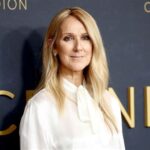
Overtourism in Barcelona is reaching a boiling point as local residents increasingly voice their frustrations, urging tourists to reconsider visiting and impacting the city’s livability. The surge in visitors, particularly during peak seasons, has led to overcrowded streets, soaring rental prices, strained infrastructure, and the erosion of local culture, prompting a growing anti-tourism sentiment and calls for more sustainable tourism management.
Barcelona, a city celebrated for its architectural wonders, vibrant culture, and Mediterranean charm, is grappling with the downside of its own popularity. While tourism undoubtedly contributes significantly to the local economy, the sheer volume of visitors has begun to outweigh the benefits, causing considerable strain on the city’s resources and the daily lives of its residents. The current situation has prompted widespread debate about the future of tourism in Barcelona and the measures necessary to strike a better balance between welcoming visitors and preserving the city’s unique character.
Rising Tensions and Protests
The discontent among Barcelona residents is palpable, marked by increased protests and public displays of anti-tourism sentiment. “Neighborhood groups have staged protests, plastered anti-tourism stickers on popular attractions, and held demonstrations to voice their grievances,” as reported by various local news outlets. These actions underscore the depth of frustration felt by those who believe their city is being overwhelmed by visitors, disrupting their daily routines and diminishing their quality of life.
The impact of tourism extends beyond mere inconvenience; it touches upon fundamental aspects of urban living. The influx of tourists drives up rental prices, making it increasingly difficult for locals to afford housing in their own city. This phenomenon, often referred to as “touristification,” leads to the displacement of long-term residents and the transformation of neighborhoods into tourist-oriented zones, devoid of their original character and community spirit.
Moreover, the strain on infrastructure is becoming increasingly evident. Public transportation systems are overcrowded, waste management services are stretched thin, and the increased demand for water and energy places additional burdens on the city’s resources. These issues, compounded by the noise and congestion associated with mass tourism, contribute to a decline in the overall livability of Barcelona.
The Economic Impact and Dependence on Tourism
While the negative impacts of overtourism are undeniable, it’s important to acknowledge the significant economic contribution of the tourism sector. Barcelona’s tourism industry generates billions of euros annually, providing employment for a substantial portion of the city’s population. Hotels, restaurants, tour operators, and countless other businesses rely heavily on tourist revenue.
However, critics argue that the over-reliance on tourism makes the city vulnerable to economic fluctuations and detracts from the development of other sustainable industries. The focus on catering to tourists can lead to a neglect of other sectors, such as technology, innovation, and green industries, which could offer more diversified and resilient economic opportunities.
Furthermore, the concentration of economic activity in the tourism sector can exacerbate income inequality, as many low-paying jobs are created while higher-skilled, higher-paying jobs remain scarce. This disparity contributes to social tensions and reinforces the perception that tourism benefits a select few at the expense of the broader community.
Proposed Solutions and Policy Changes
In response to the growing crisis, Barcelona’s city government has implemented a range of measures aimed at managing tourism more effectively and mitigating its negative impacts. These initiatives include:
-
Limiting the Number of Hotel Licenses: The city has imposed restrictions on the construction of new hotels in certain areas, particularly in the city center, to prevent further saturation and maintain a balance between tourist accommodation and residential housing.
-
Regulating Tourist Apartments: The proliferation of illegal tourist apartments has been a major concern, as it contributes to the housing shortage and drives up rental prices. The city has stepped up enforcement efforts to crack down on unlicensed rentals and ensure that all tourist accommodations comply with safety and quality standards.
-
Promoting Sustainable Tourism: The city is actively promoting sustainable tourism practices, encouraging visitors to explore lesser-known neighborhoods, support local businesses, and respect the environment. This includes initiatives such as promoting off-season travel, developing alternative tourism routes, and raising awareness about responsible travel behavior.
-
Investing in Public Transportation: To alleviate overcrowding and improve accessibility for both residents and tourists, the city is investing in upgrades and expansions of its public transportation network, including the metro, buses, and trams.
-
Increasing Tourist Tax: The city has increased the tourist tax, a levy charged on overnight stays in hotels and other accommodations. The revenue generated from this tax is used to fund infrastructure improvements, cultural initiatives, and other projects that benefit both residents and tourists.
-
Dialogue and Collaboration: The city government is actively engaging in dialogue with residents, businesses, and other stakeholders to find common ground and develop collaborative solutions to the challenges of overtourism. This includes holding public forums, conducting surveys, and establishing advisory committees to gather input and ensure that all voices are heard.
The Need for a Holistic Approach
While these measures represent a step in the right direction, many argue that a more comprehensive and holistic approach is needed to address the root causes of overtourism and ensure the long-term sustainability of Barcelona’s tourism industry. This requires a shift in mindset, from viewing tourism as a purely economic activity to recognizing its broader social, cultural, and environmental impacts.
One key element of a holistic approach is to diversify the local economy and reduce the city’s dependence on tourism. This can be achieved by investing in other sectors, such as technology, innovation, and green industries, and by creating an environment that fosters entrepreneurship and attracts skilled workers.
Another important aspect is to empower local communities and give them a greater say in the management of tourism. This can involve establishing neighborhood-level tourism councils, supporting community-based tourism initiatives, and ensuring that residents benefit directly from the economic activity generated by tourism.
Furthermore, it is crucial to promote responsible travel behavior and encourage tourists to be more mindful of their impact on the local community. This can be achieved through educational campaigns, targeted marketing, and the development of codes of conduct for tourists.
The Future of Tourism in Barcelona
The future of tourism in Barcelona hinges on the ability of the city to strike a better balance between welcoming visitors and preserving its unique character and livability. This requires a concerted effort from all stakeholders, including the government, businesses, residents, and tourists themselves.
By embracing a more sustainable and responsible approach to tourism, Barcelona can ensure that it remains a vibrant and welcoming destination for generations to come. This means prioritizing the well-being of local communities, protecting the environment, and fostering a culture of respect and understanding between visitors and residents.
The challenges facing Barcelona are not unique; many other popular tourist destinations around the world are grappling with similar issues. By learning from Barcelona’s experience and adopting best practices, these cities can work towards creating a more sustainable and equitable future for tourism. The need for thoughtful planning and community involvement cannot be overstated, and the success of tourism hinges on these aspects.
The Anti-Tourism Movement: A Global Phenomenon
The anti-tourism sentiment in Barcelona is part of a broader global trend, reflecting the growing awareness of the negative impacts of mass tourism on local communities and the environment. From Venice to Amsterdam to Kyoto, cities around the world are grappling with the challenges of overtourism and seeking ways to manage it more effectively.
The rise of the anti-tourism movement is a sign that the traditional model of mass tourism is no longer sustainable. As travelers become more aware of the social and environmental costs of their trips, they are increasingly seeking out more responsible and authentic experiences. This shift in demand presents an opportunity for destinations to rethink their tourism strategies and develop more sustainable models that benefit both visitors and residents.
The Role of Technology in Managing Tourism
Technology can play a crucial role in managing tourism more effectively and mitigating its negative impacts. For example, data analytics can be used to track tourist flows, identify congestion hotspots, and predict future demand. This information can then be used to inform policy decisions and optimize resource allocation.
Mobile apps and digital platforms can also be used to promote sustainable tourism practices, such as encouraging visitors to explore lesser-known neighborhoods, support local businesses, and respect the environment. These tools can also provide real-time information about public transportation, attractions, and events, helping visitors to navigate the city more easily and avoid overcrowding.
Furthermore, technology can be used to facilitate communication and engagement between tourists and local communities. Online forums, social media platforms, and community-based tourism initiatives can help to foster a sense of understanding and connection between visitors and residents, promoting a more positive and mutually beneficial tourism experience.
Conclusion: A Call for Responsible Tourism
The situation in Barcelona serves as a cautionary tale about the potential consequences of unchecked tourism growth. While tourism can be a valuable source of economic development and cultural exchange, it must be managed responsibly to ensure that it benefits both visitors and residents.
By embracing a more sustainable and holistic approach to tourism, Barcelona and other destinations can create a future where tourism contributes to the well-being of local communities, protects the environment, and fosters a culture of respect and understanding. This requires a collective effort from all stakeholders, including governments, businesses, residents, and tourists themselves.
It is time to move beyond the traditional model of mass tourism and embrace a new vision of tourism that is more sustainable, equitable, and responsible. Only then can we ensure that tourism remains a force for good in the world. Thoughtful considerations are necessary to balance the advantages and challenges of tourism.
Frequently Asked Questions (FAQ)
-
What is the main reason Barcelona residents are asking tourists to stay away?
Barcelona residents are increasingly frustrated with overtourism, which leads to overcrowded streets, rising rental prices, strains on infrastructure, and erosion of local culture. As the original source mentions, “Neighborhood groups have staged protests, plastered anti-tourism stickers on popular attractions, and held demonstrations to voice their grievances,” indicating the depth of their frustration.
-
How does tourism affect the housing market in Barcelona?
The influx of tourists drives up rental prices, making it difficult for locals to afford housing. This “touristification” displaces long-term residents and transforms neighborhoods into tourist-oriented zones, devoid of original character. The high demand for short-term rentals reduces the availability of affordable housing for residents.
-
What measures has the Barcelona city government taken to manage tourism?
The city has implemented measures such as limiting hotel licenses, regulating tourist apartments, promoting sustainable tourism, investing in public transportation, increasing the tourist tax, and engaging in dialogue with stakeholders. These initiatives aim to mitigate the negative impacts of tourism while still acknowledging its economic importance.
-
Besides the economic impact, what are some other effects of overtourism on Barcelona?
Overtourism strains infrastructure (public transportation, waste management), leads to congestion and noise, and contributes to a decline in the overall livability of the city. It also risks eroding the local culture and community spirit as neighborhoods become more focused on catering to tourist needs.
-
What can tourists do to be more responsible when visiting Barcelona?
Tourists can explore lesser-known neighborhoods, support local businesses, respect the environment, use public transportation, and be mindful of their impact on the local community. Embracing responsible travel behavior is essential to minimize negative effects and ensure a more positive experience for both visitors and residents.
Detailed Analysis of Overtourism in Barcelona
The issue of overtourism in Barcelona is a multifaceted problem rooted in a complex interplay of economic, social, and environmental factors. Understanding the nuances of this issue requires a deep dive into the historical context, the motivations of various stakeholders, and the potential long-term consequences.
Historical Context: Barcelona’s Transformation into a Tourist Hotspot
Barcelona’s transformation into a global tourist destination began in the late 20th century, driven by a combination of factors, including the city’s rich cultural heritage, its stunning architecture (particularly the works of Antoni Gaudí), its Mediterranean climate, and its strategic location. The 1992 Olympic Games played a pivotal role in showcasing Barcelona to the world, attracting significant investment and infrastructure development that further enhanced its appeal as a tourist destination.
In the decades following the Olympics, Barcelona experienced a rapid increase in tourist arrivals, fueled by the rise of budget airlines, online travel agencies, and social media platforms. These factors made it easier and more affordable for people from all over the world to visit the city, leading to an unprecedented surge in demand for tourist accommodation, attractions, and services.
The Economic Benefits of Tourism: A Double-Edged Sword
Tourism has undoubtedly brought significant economic benefits to Barcelona, generating billions of euros in revenue and creating thousands of jobs. The tourism sector supports a wide range of businesses, from hotels and restaurants to tour operators and souvenir shops. It also contributes to the city’s tax base, providing funding for public services and infrastructure projects.
However, the economic benefits of tourism are not evenly distributed. Much of the revenue generated by tourism flows to large corporations and foreign investors, while local businesses and residents often struggle to compete in the face of rising prices and increased competition. This disparity can exacerbate income inequality and contribute to social tensions.
Furthermore, the over-reliance on tourism makes the city vulnerable to economic shocks. Events such as the COVID-19 pandemic, which brought international travel to a standstill, can have a devastating impact on Barcelona’s economy, highlighting the need for diversification and resilience.
The Social and Cultural Impacts: Erosion of Local Identity
The social and cultural impacts of overtourism are often overlooked, but they can be just as significant as the economic impacts. The influx of tourists can lead to the displacement of local residents, the homogenization of neighborhoods, and the erosion of local traditions and customs.
As neighborhoods become increasingly focused on catering to tourist needs, they lose their unique character and community spirit. Local shops and businesses are replaced by souvenir shops and chain stores, and traditional markets are transformed into tourist attractions. This can lead to a sense of alienation and disenfranchisement among local residents, who feel that their city is no longer their own.
Furthermore, the constant presence of tourists can disrupt the daily lives of residents, causing noise, congestion, and a lack of privacy. This can lead to stress, anxiety, and a decline in the overall quality of life.
The Environmental Impacts: Unsustainable Resource Consumption
The environmental impacts of overtourism are also a major concern. The increased demand for water, energy, and waste management services places a strain on the city’s resources and contributes to pollution and environmental degradation.
Tourism-related activities, such as air travel, cruise ship operations, and hotel construction, generate significant greenhouse gas emissions, contributing to climate change. The disposal of waste from tourist accommodations and restaurants can also pollute local waterways and ecosystems.
Furthermore, the construction of tourist infrastructure, such as hotels and resorts, can lead to the destruction of natural habitats and the displacement of wildlife.
Stakeholder Perspectives: Conflicting Interests
Addressing the challenges of overtourism requires a careful consideration of the perspectives of various stakeholders, including the government, businesses, residents, and tourists themselves.
The government has a responsibility to balance the economic benefits of tourism with the social, cultural, and environmental impacts. This requires implementing policies that promote sustainable tourism practices, protect local communities, and ensure that tourism benefits all members of society.
Businesses have a responsibility to operate in a responsible and ethical manner, respecting the local culture and environment. This includes paying fair wages, sourcing local products, and minimizing their environmental footprint.
Residents have a right to live in a city that is safe, clean, and livable. Their voices must be heard in the decision-making process, and their concerns must be addressed.
Tourists have a responsibility to be respectful of the local culture and environment. This includes following local customs, supporting local businesses, and minimizing their impact on the city.
Potential Solutions: A Multi-Pronged Approach
There is no single solution to the problem of overtourism. A multi-pronged approach is needed, involving a combination of policy changes, technological innovations, and behavioral shifts.
Some potential solutions include:
-
Implementing visitor management strategies: This could involve limiting the number of visitors to certain attractions, introducing reservation systems, and promoting off-season travel.
-
Promoting sustainable tourism practices: This could involve encouraging visitors to use public transportation, support local businesses, and reduce their waste.
-
Investing in infrastructure improvements: This could involve upgrading public transportation systems, improving waste management services, and creating more green spaces.
-
Empowering local communities: This could involve establishing neighborhood-level tourism councils, supporting community-based tourism initiatives, and ensuring that residents benefit directly from the economic activity generated by tourism.
-
Raising awareness among tourists: This could involve launching educational campaigns to promote responsible travel behavior and encourage tourists to be more mindful of their impact on the local community.
The Long-Term Consequences of Inaction
If the challenges of overtourism are not addressed effectively, the long-term consequences could be dire. The city could become increasingly congested, polluted, and unaffordable, leading to a decline in the quality of life for residents. The local culture and traditions could be eroded, and the city could lose its unique character and appeal. The environment could be degraded, leading to irreversible damage to ecosystems and natural resources.
Furthermore, the growing anti-tourism sentiment could lead to social unrest and political instability. It is therefore imperative that all stakeholders work together to find solutions that promote sustainable tourism and ensure a better future for Barcelona. The city’s rich history and potential for growth depend on making thoughtful choices now.








